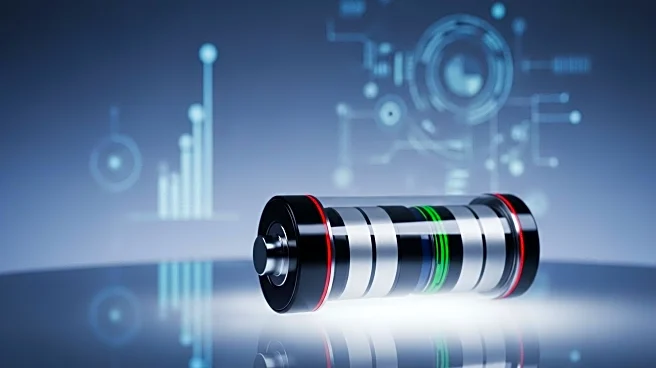What is the story about?
What's Happening?
American Battery Technology Company (ABTC) has released its Form 10-K report for the fiscal year 2025, highlighting both progress and challenges in the battery materials industry. The company is focused on increasing U.S. production of critical battery materials such as lithium, nickel, cobalt, and manganese through exploration, technology development, and recycling of lithium-ion batteries. Despite improved financial performance, ABTC faces substantial doubt about its ability to continue as a going concern due to the need for significant additional financing within the next 12 months. The company has relied on equity and debt financing to support its operations and expansion projects. Additionally, ABTC is dealing with volatile global metal prices, geopolitical risks, technological risks, and potential litigation, which could adversely affect its financial condition.
Why It's Important?
The challenges faced by ABTC are significant for the U.S. battery materials industry, which is crucial for the country's energy independence and technological advancement. As the demand for electric vehicles and renewable energy storage solutions grows, the ability to produce and recycle battery materials domestically becomes increasingly important. ABTC's efforts to ramp up production and recycling operations could help reduce reliance on foreign sources and enhance the U.S. supply chain for critical minerals. However, the financial uncertainties and risks highlighted in the report could impact the company's ability to contribute effectively to these national goals. Stakeholders, including investors and policymakers, will need to consider these factors when supporting the company's initiatives.
What's Next?
ABTC plans to accelerate the demonstration and commercialization of its lithium extraction process, aiming to produce battery-grade lithium hydroxide from Nevada-based resources. The company has been awarded grants to support the construction and operation of a multi-ton per day integrated demonstration system. Additionally, ABTC has completed the construction and commissioning of its lithium hydroxide pilot plant, which will demonstrate technologies for lithium extraction and generate battery-grade lithium hydroxide for customer evaluation. These steps are crucial for the company's future growth and its ability to overcome current financial challenges.
Beyond the Headlines
The development of domestic battery material production and recycling capabilities by companies like ABTC could have long-term implications for U.S. energy policy and environmental sustainability. By reducing dependence on foreign sources and improving recycling processes, the U.S. can enhance its energy security and reduce the environmental impact of battery production. Furthermore, successful commercialization of ABTC's technologies could lead to advancements in battery efficiency and cost-effectiveness, benefiting consumers and industries reliant on battery-powered technologies.
















